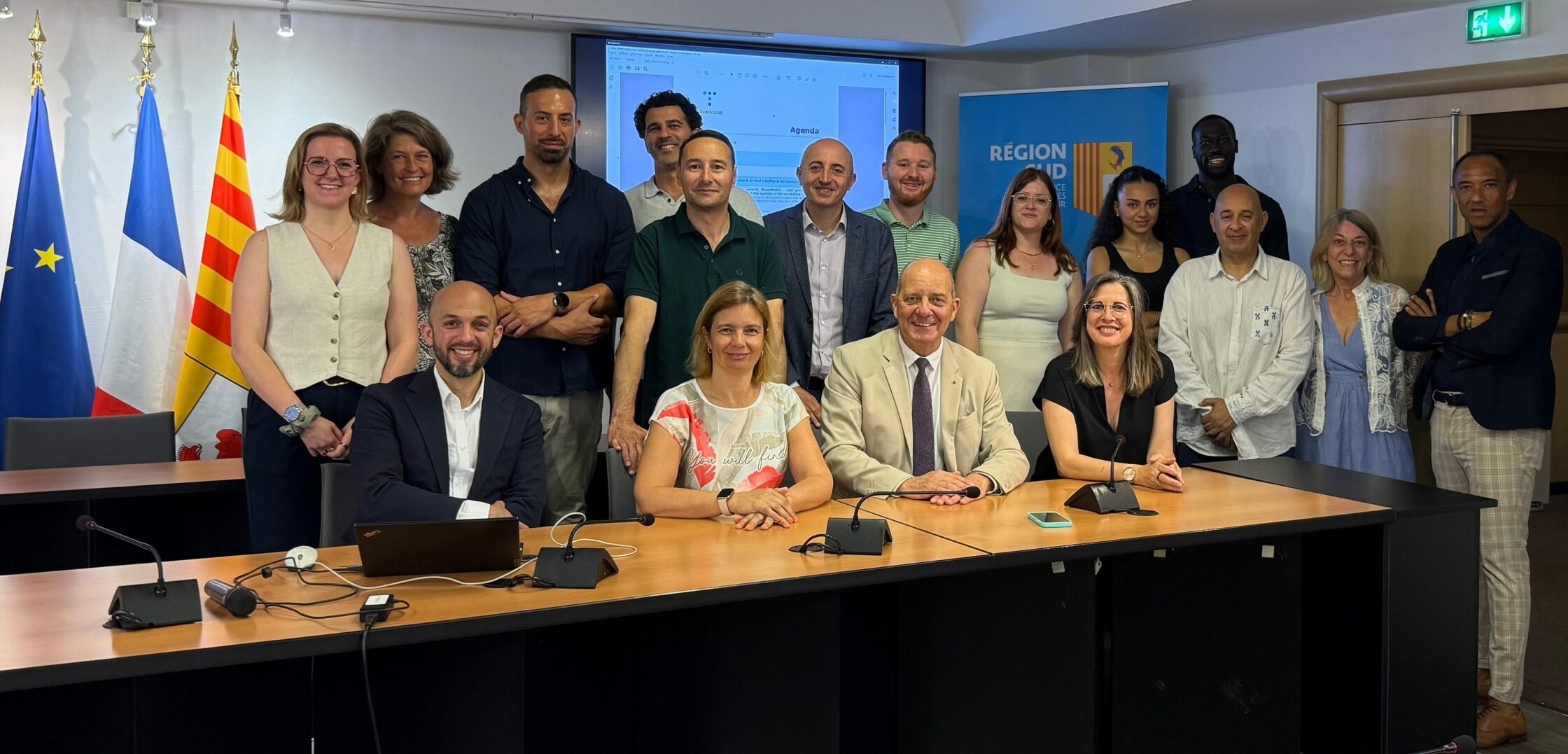Marseille, France, June 2025 – How can citizens be better involved in preventing and combating gender-based violence? Representatives from some 25 European local and regional authorities worked on this issue during a workshop organised by Efus in June in Marseille (photo above), as part of the European TRANSCEND project. This project seeks to improve civil society participation in security technologies and assess its needs.
Exchanges between European cities and scientists
Representatives from the municipalities of Kalamaria (Greece), The Hague (Netherlands), Mechelen (Belgium), Matosinhos (Portugal) and several cities in the south of France, such as Cagnes-sur-Mer, Grasse, Martigues and Marseille, were present. The French South Region (Région Sud) played a central role as partner and host of the event.
Civil society organisations, including France Victimes, as well as experts from Catalonia (Spain), also participated. For their part, the scientific partners of the TRANSCEND project – Trilateral Research, Fraunhofer ISI, the Austrian Red Cross and the Peace Research Institute Oslo – shared their expertise.
This diversity enabled a rich exchange, rooted in varied local contexts but united around a common goal: to ensure inclusive, transparent and citizen-centred security policies.
A toolkit for local authorities
Efus and Trilateral Research presented the TRANSCEND project, its methodology and its toolkit (a manual) designed to help local authorities involve citizens in the various stages of designing and implementing security tools, technologies and strategies.
Participants also learned about the results of four pilot experiments on citizen involvement in cybersecurity, crime prevention, border management and disaster resilience. These examples served as a basis for adapting the method to the complex and urgent issue of gender-based violence (GBV).
Inspiring local practices and tools
The South Region presented two schemes currently in use: Umay, a mobile app to assist women who are victims of violence, and Mémo de Vie, a secure digital space for collecting and filing evidence. These tools are part of the 2024–2027 Justice-Region Convention, which supports a coordinated response by French institutions to GBV.
Collective reflection on citizen participation
Participants also engaged in collective reflection during a World Café session on three themes:
- How can obstacles to citizen and institutional participation be removed?
- How can citizens be involved in preventing and combating GBV?
- How can coordination between local actors (municipalities, non-governmental organisations, police, schools) be strengthened?
Organising regular exchanges
The Marseille workshop confirmed the relevance of inter-territorial and European exchanges in developing collective responses. It showed that when citizens, institutions and civil society organisations build solutions together, policies are perceived as more legitimate, effective and fair.
Representatives from the South Region expressed their desire to launch an annual or biannual meeting between cities and European partners to continue exchanges on best practices for combating gender-based violence. These exchanges could be coordinated by Efus.
> More information on the TRANSCEND project
> Download the toolkit and documents produced by TRANSCEND
> For more information: contact Anne Boisseau, boisseau@efus.eu, and/or Bamba Niang, niang@efus.eu





